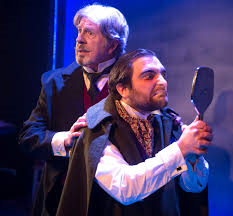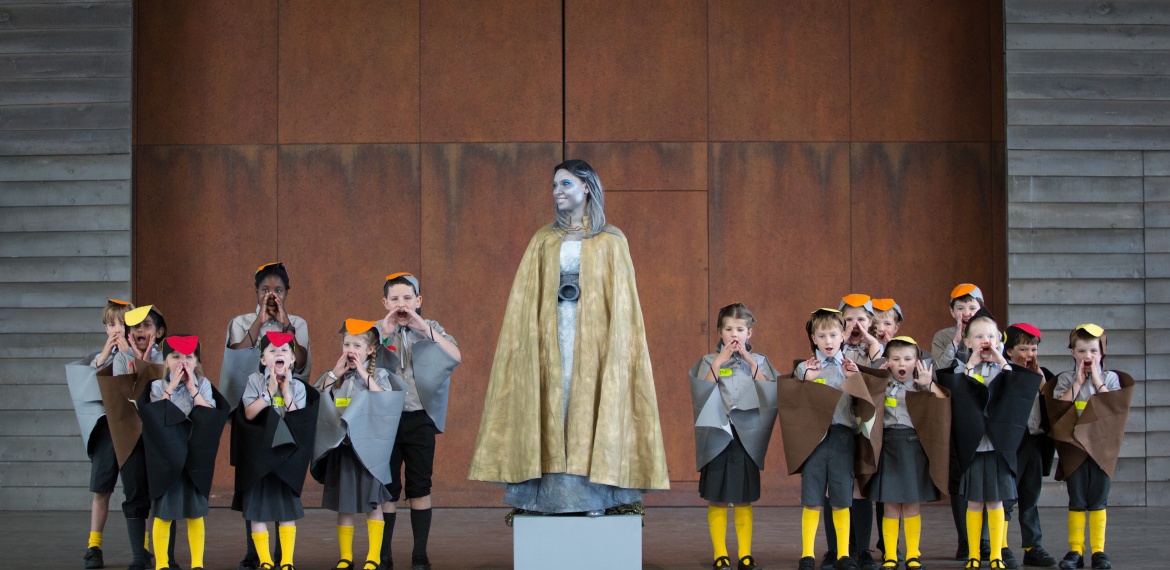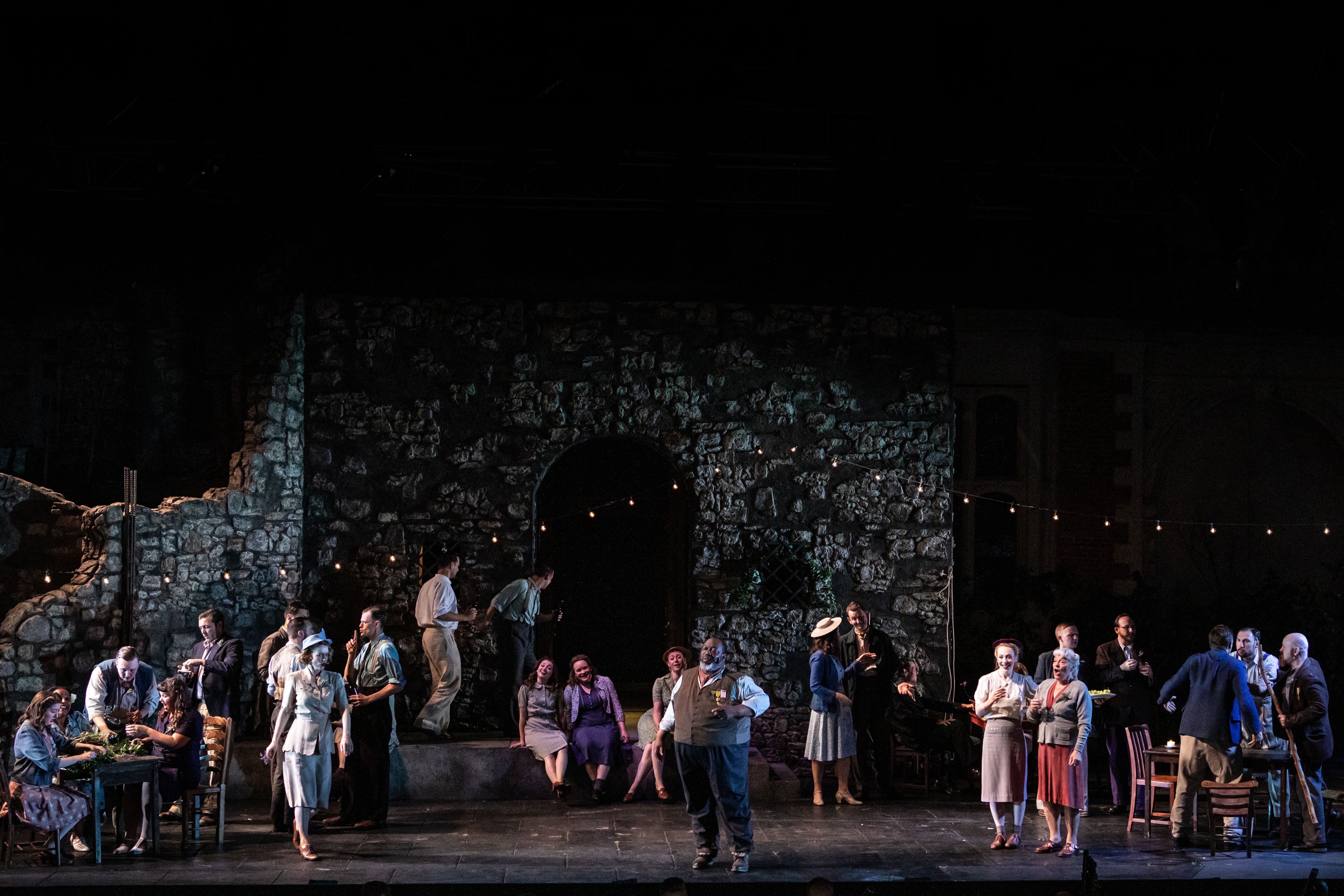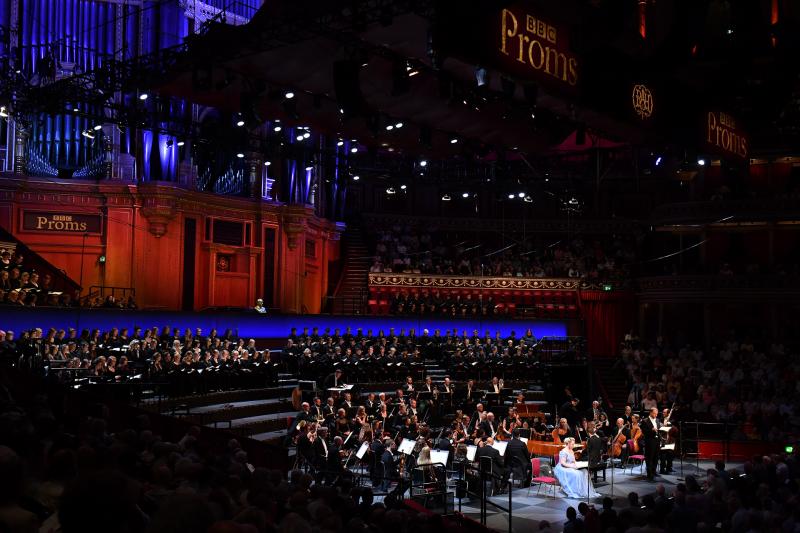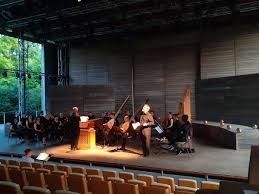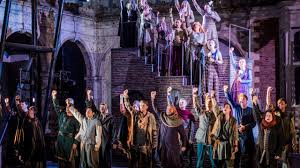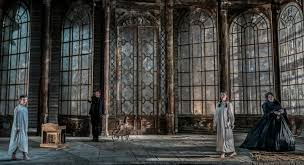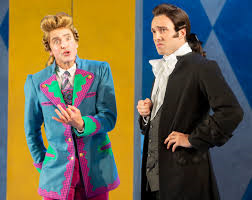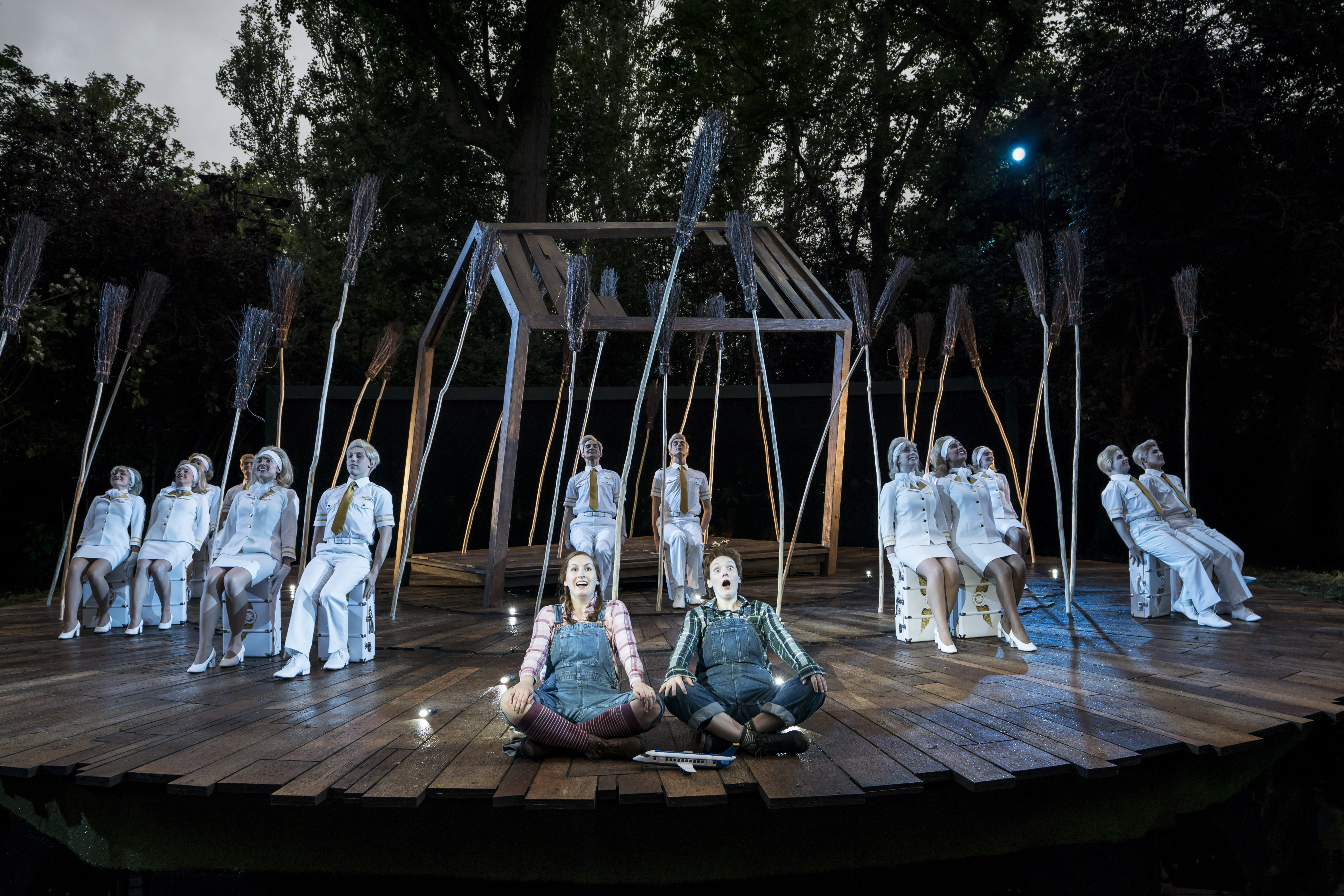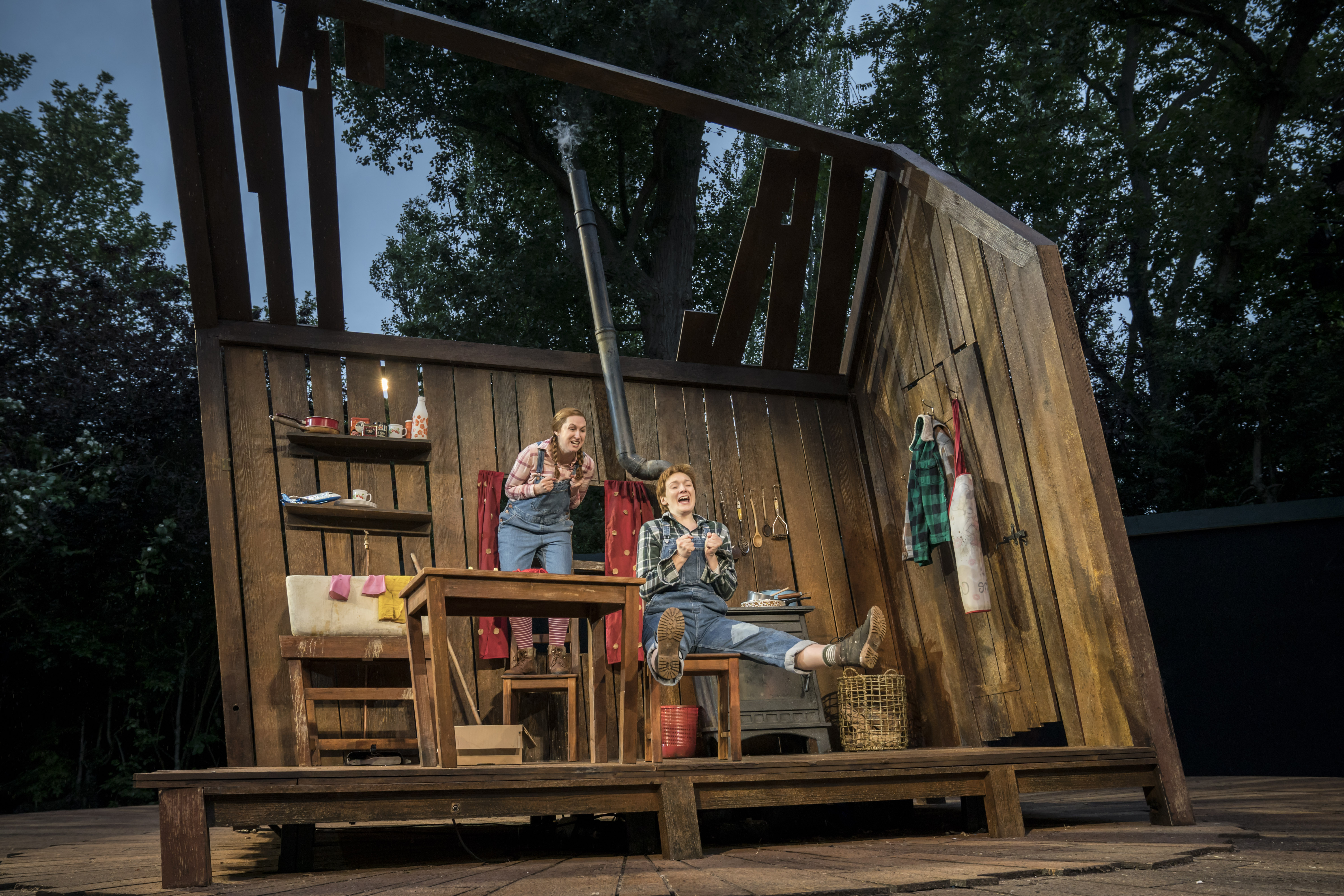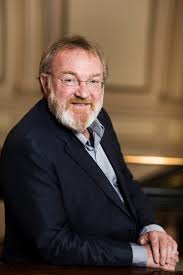Hever Castle Theatre, Thursday 8 August 2019
One of the benefits of the relative lack of regular G&S these days is that a sudden encounter can reawaken not only old memories but also new delights in the splendid impact of the works when performed with musical integrity as well as real wit. Charles Court Opera gives us both, updating the setting and going all out for comedic effect while never undermining Gilbert’s craft or the genuine musical qualities of Sullivan’s score.
Orchestration was never one of Sullivan’s strengths so having the evening accompanied by David Eaton from the keyboard was perfectly acceptable, particularly when it allowed voices to carry so well. There is no chorus but Alys Roberts and Meriel Cummingham more than made up for this as two very knowing professional bridesmaids, with Amy J Payne’s frighteningly efficient Dame Hannah supporting them.
Joanna Marie Skillett has the vocal charms for Rose Maybud, torn between Matthew Kellett’s gently effective Robin and Philip Lee’s extrovert Dick Dauntless – a sailor very obviously related to Dick Deadeye. At the heart of the comedy lie Despard Murgatroyd and Mad Margaret and I can’t recall having seen them better that last night with Simon Butteriss and Catrine Kirkman. Simon Butteriss was also doubling Roderick, and it was a pity that the production meant that he had to sing The Ghosts High Noon as a disembodied head peering through the back wall. That he did so well was a tribute to his unfailing musicianship. But as Despard (reformed) he was brilliant and an absolute foil for Catrine Kirkman’s Margaret. There was a desperate intensity about her which was captivating and intensely funny – think Joyce Grenfell on acid. Whether verging on insanity or under the control of Basingstoke it was a masterpiece of comic acting.
Simon Masterton-Smith was Adam but also provided all the essential bass-lines where required.
The weather smiled on us – not always the case at Hever – as did the whole evening. The theatre is not easy to get to but on occasions like this it is worth every inch of the narrow roads.

